
PIETRO DE LA FRANCESCA IL RETROVAMENTO DELLA VERA CROCE BASILICA DE SAN FRANCISCO EN AREZZO
Piero della Francesca was a unique painter among the artists and architects of the Italian Renaissance. View Piero della Francesca's artworks on artnet. Learn about the artist and find an in-depth biography, exhibitions, original artworks, the latest news, and sold auction prices.
.jpg)
Piero della Francesca (14221492) Tutt'Art Masterpieces
Piero della Francesca, (born c. 1416/17, Sansepolcro, Republic of Florence [Italy]—died October 12, 1492, Sansepolcro), painter whose serene, disciplined exploration of perspective had little influence on his contemporaries but came to be recognized in the 20th century as a major contribution to the Italian Renaissance.The fresco cycle The Legend of the True Cross (1452-66) and the diptych.
.jpg)
Annunciation, 1464 Piero della Francesca
Full title. The Baptism of Christ. Artist. Piero della Francesca. Artist dates. about 1415/20 - 1492. Date made. probably about 1437-1445. Medium and support.

Piero della Francesca Natività (dettaglio) olio su tavola ultima fase artistica 14701475
Piero della Francesca (/ ˌ p j ɛər oʊ ˌ d ɛ l ə f r æ n ˈ tʃ ɛ s k ə /, US also /-f r ɑː n ˈ-/, Italian: [ˈpjɛːro della franˈtʃeska] ⓘ; né Piero di Benedetto; c. 1415 - 12 October 1492) was an Italian painter of the Early Renaissance.To contemporaries he was also known as a mathematician and geometer. Nowadays Piero della Francesca is chiefly appreciated for his art.

Пьеро делла Франческа XVe Piero della Francesca (337 работ) Renaissance paintings
Piero della Francesca, The Nativity, 1470-75, National Gallery, London With its gilded frame. The Nativity is an oil painting by Italian Renaissance artist Piero della Francesca, dated to 1470-75.The painting depicts a scene from the birth of Jesus, and is one of the latest surviving paintings made by the artist before his death in 1492.Held by the National Gallery in London, it measures.
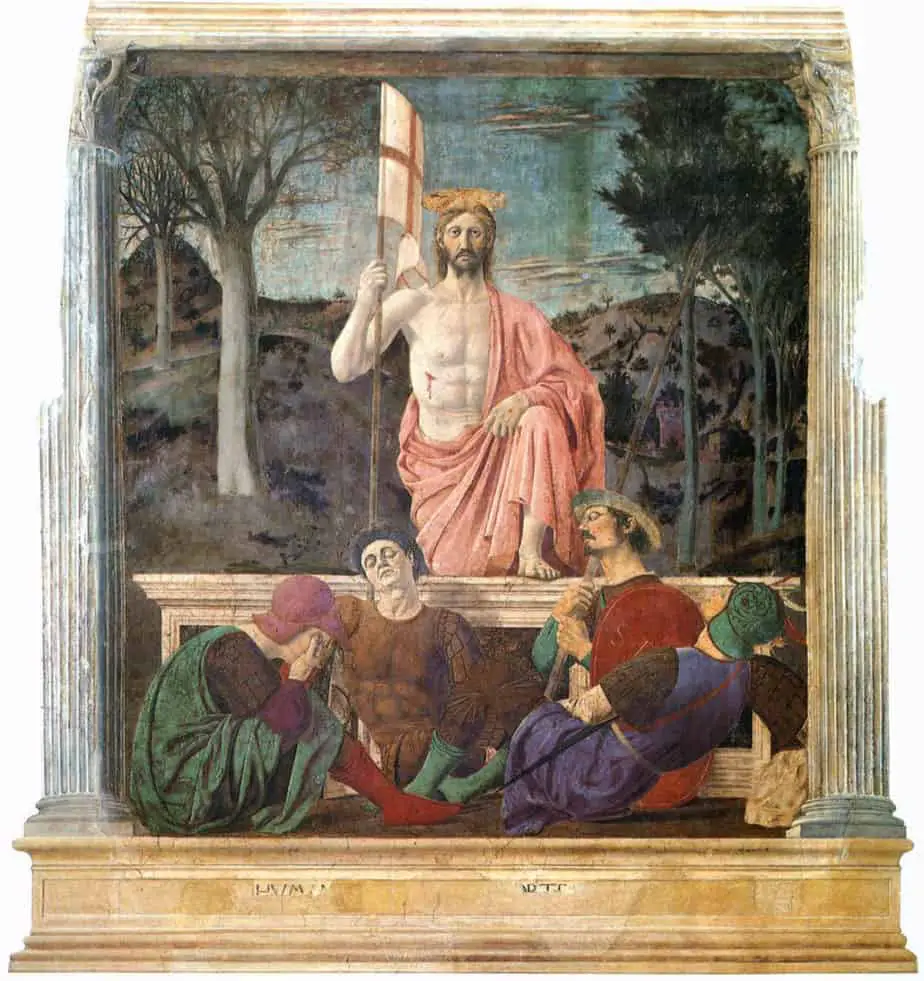
Sansepolcro, Italy "The Resurrection", Fresco by Pier Della Francesca The Catholic Travel Guide
The Resurrection is a fresco painting by the Italian Renaissance master Piero della Francesca, painted in the 1460s in the Palazzo della Residenza in the town of Sansepolcro, Tuscany, Italy. Piero was commissioned to paint the fresco for the Gothic -style Residenza, the communal meeting hall [1] which was used solely by Conservatori, the chief.
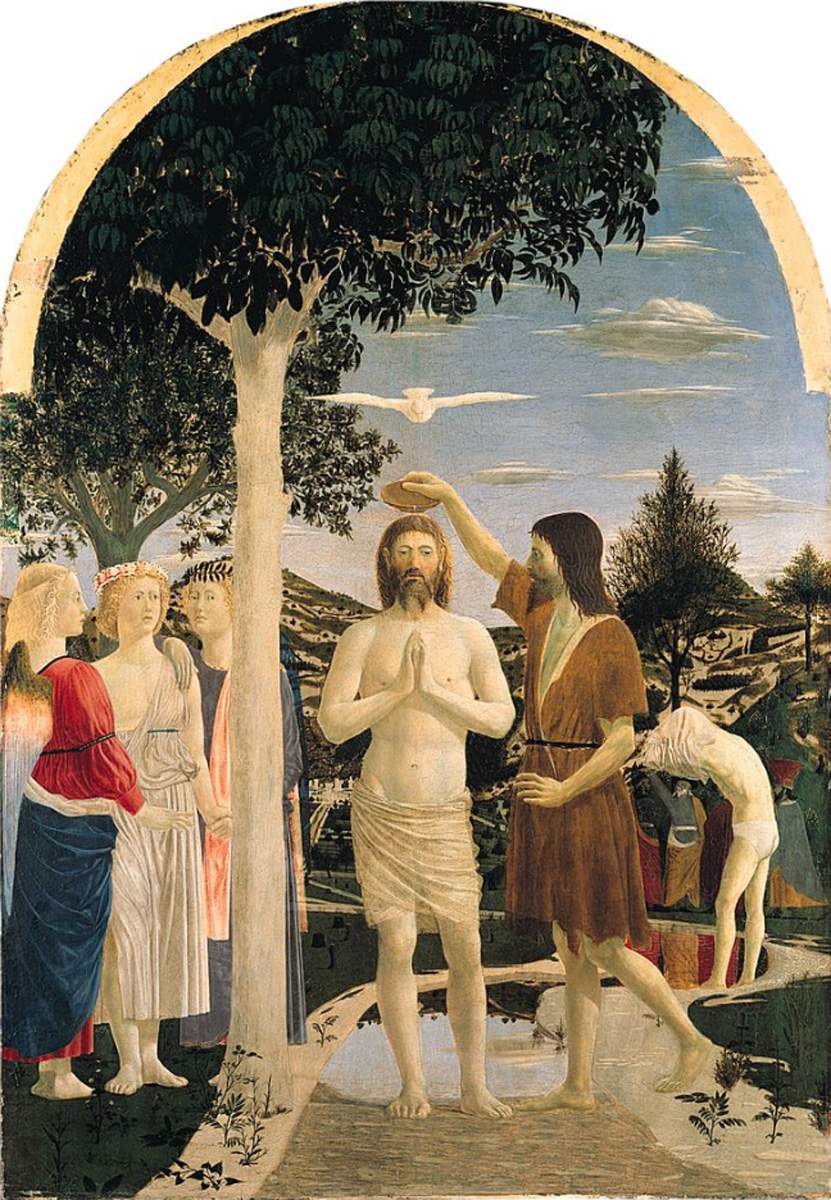
London National Gallery Top 20 01 Piero della Francesca The Baptism Of Christ
Best Price Guarantee! Book & Save. Hotel Piero Della Francesca, Arezzo.
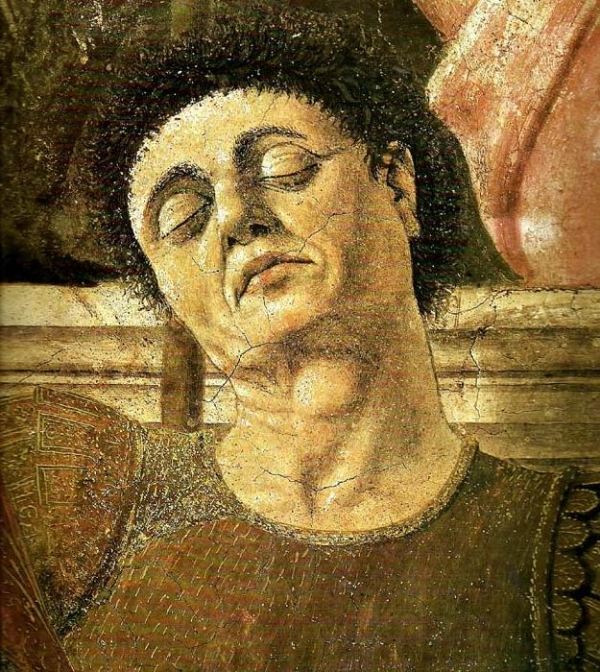
October 12 Piero della Francesca passed away in 1492 Carpe diem 101
This is one of the major differences between Renaissance and Medieval art, and is partly why Piero is considered one of the great early Renaissance painters. Piero della Francesca, Christ (detail), The Resurrection, c. 1463-65, fresco, 225 x 200 cm (Museo Civico, Sansepolcro, Italy)
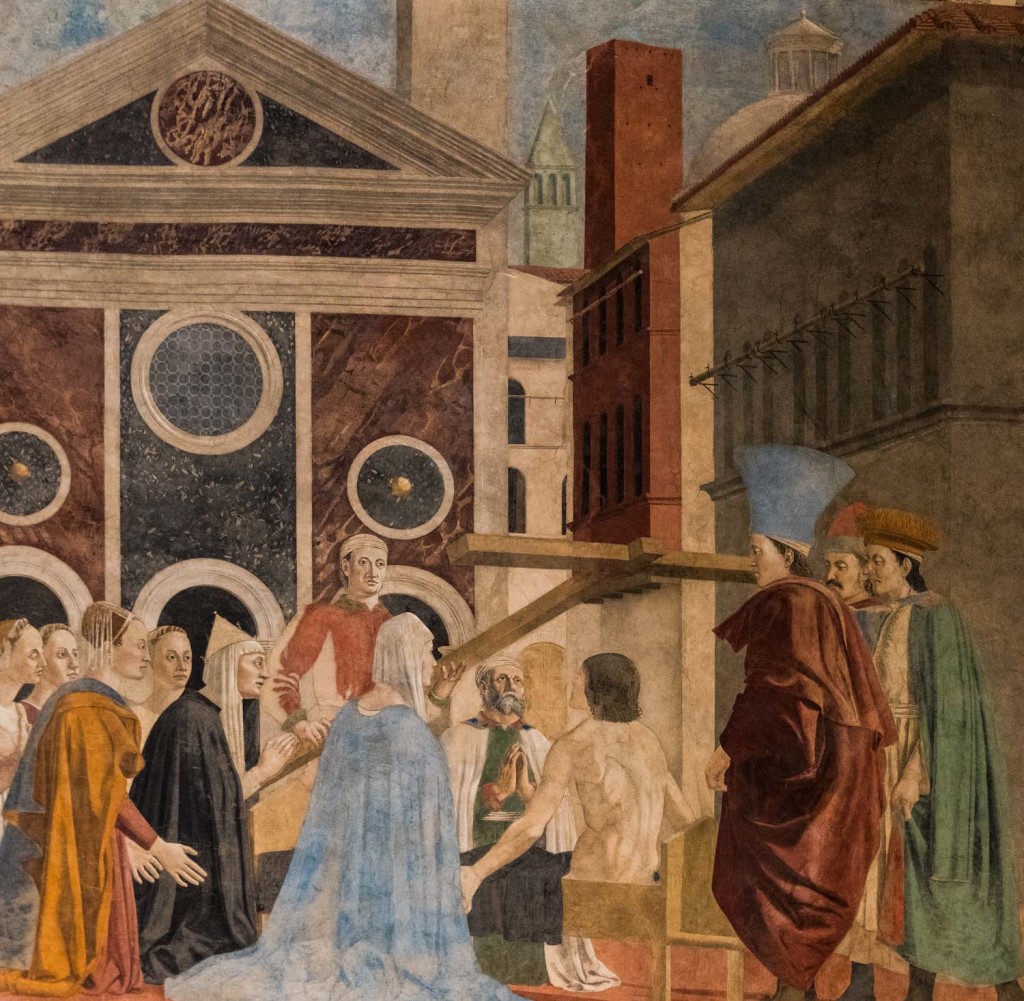
THE LEGEND OF THE TRUE CROSS BY PIERO DELLA FRANCESCA IN AREZZO
In particular, Piero della Francesca's masterpieces are spread out between Arezzo, Monterchi, and Sansepolcro in the province of Arezzo. As an early Italian Renaissance painter, Piero della Francesca's paintings were "characterized by a serene humanism, geometric forms and use of perspective" using color and spatial relations to give life.

Piero della Francesca, Flagellazione di Cristo,145560, particolare, Urbino Galleria Nazionale
For the full article, see Piero della Francesca . Piero della Francesca , (born c. 1420, Sansepolcro?, Republic of Florence—died Oct. 12, 1492, Sansepolcro), Italian painter. Son of a prosperous tanner and wool merchant, he became known for his serene, disciplined exploration of perspective. His fresco cycle for San Francesco at Arezzo, The.
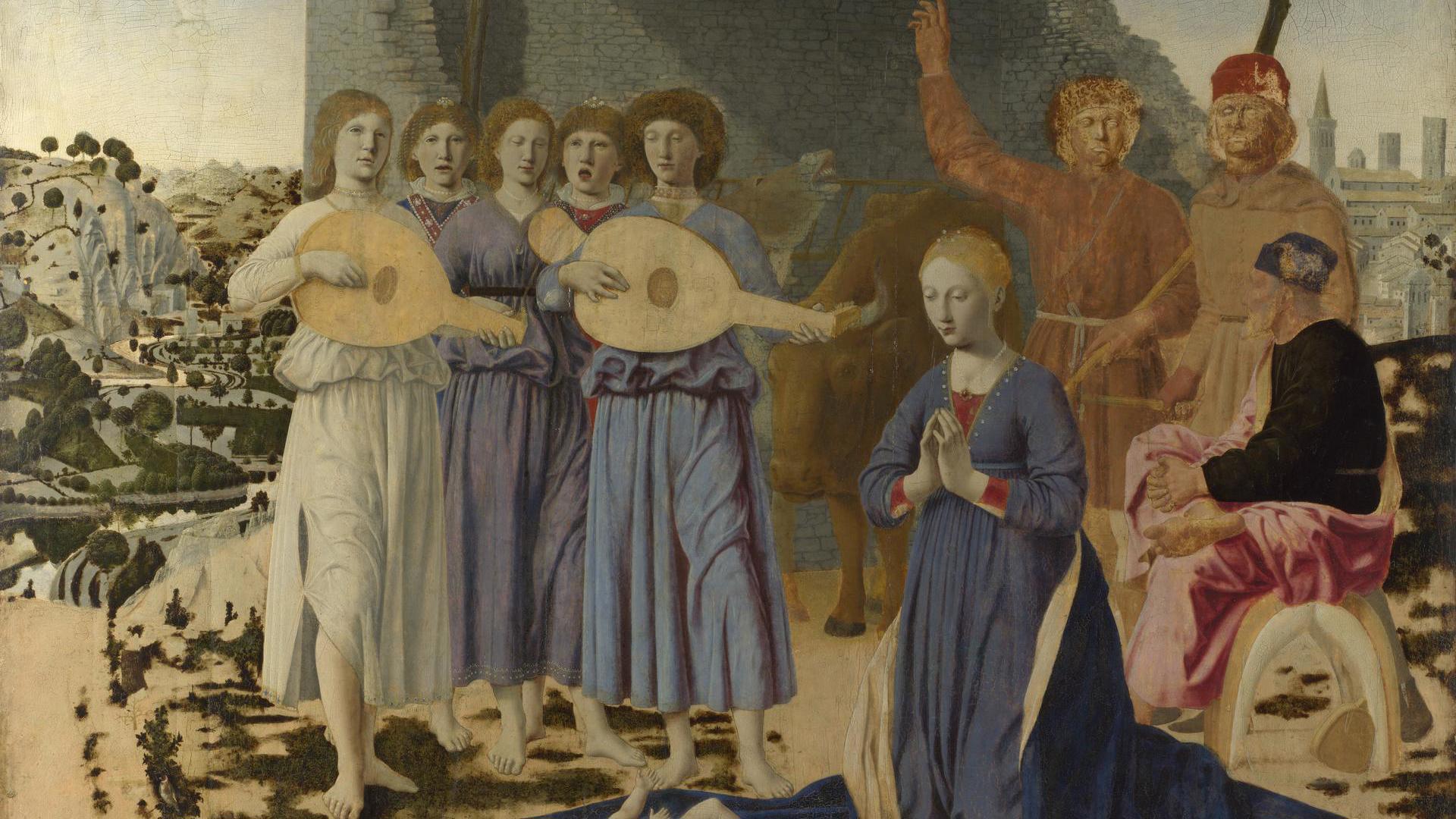
Piero della Francesca The Nativity NG908 National Gallery, London
Piero di Benedetto de' Franceschi, noto comunemente come Piero della Francesca ( Borgo Sansepolcro, giugno 1412 circa - Borgo Sansepolcro, 12 ottobre 1492 ), è stato un pittore e matematico italiano. [1] Tra le personalità più emblematiche del Rinascimento italiano, fu un esponente della seconda generazione di pittori-umanisti.

Piero della Francesca, L'Annonciation, polyptique de Pérouse, 1470. Détrempe sur bois, 122 x 194
Piero della Francesca, one of the most admired artists of the Italian Renaissance, is an extraordinary painting. Striking for its beauty and apparent simplicity, it is one of Piero's last works, and was made for his family palace in Borgo San Sepolcro, Tuscany, where it remained until 1825. When the National Gallery acquired the painting in the.

MASTERPIECES OF ART IN THE CENTURIES / URBINO Piero della Francesca The Flagellation of
Piero della Francesca is one of the most admired 15th-century Italian painters. The cool colour palette and geometrical compositions contribute to the refined and meditative nature of his works. Piero was born in Borgo Sansepolcro, in Tuscany. He worked in various central Italian towns, but retained links with Sansepolcro, visible in the background of the 'Baptism of Christ'.

ピエロ・デッラ・フランチェスカ作 多翼祭壇画「慈悲の聖母」 Renaissance Kunst, Die Renaissance, Renaissance Paintings
Face of soldier in brown armor (detail), Piero della Francesca, The Resurrection, c. 1463-5, fresco, 225 x 200 cm (Museo Civico, Sansepolcro) Perhaps the most striking feature of Piero's fresco is the physical reality of the people he paints. Piero has been lauded as one of the first painters of the Renaissance to capture realistic faces that.
.jpg)
St. Sigismund and Sigismondo Pandolfo Malatesta, 1451 Piero della Francesca
Summary of Piero della Francesca. Piero della Francesca harnessed mathematical theory and geometry, combining them with Renaissance Humanism, to create some of the most arresting religious paintings of the early Renaissance.His use of linear perspective and foreshortening brought biblical scenes and legends to life, and his emulation of classical figures and compositions lend his paintings a.
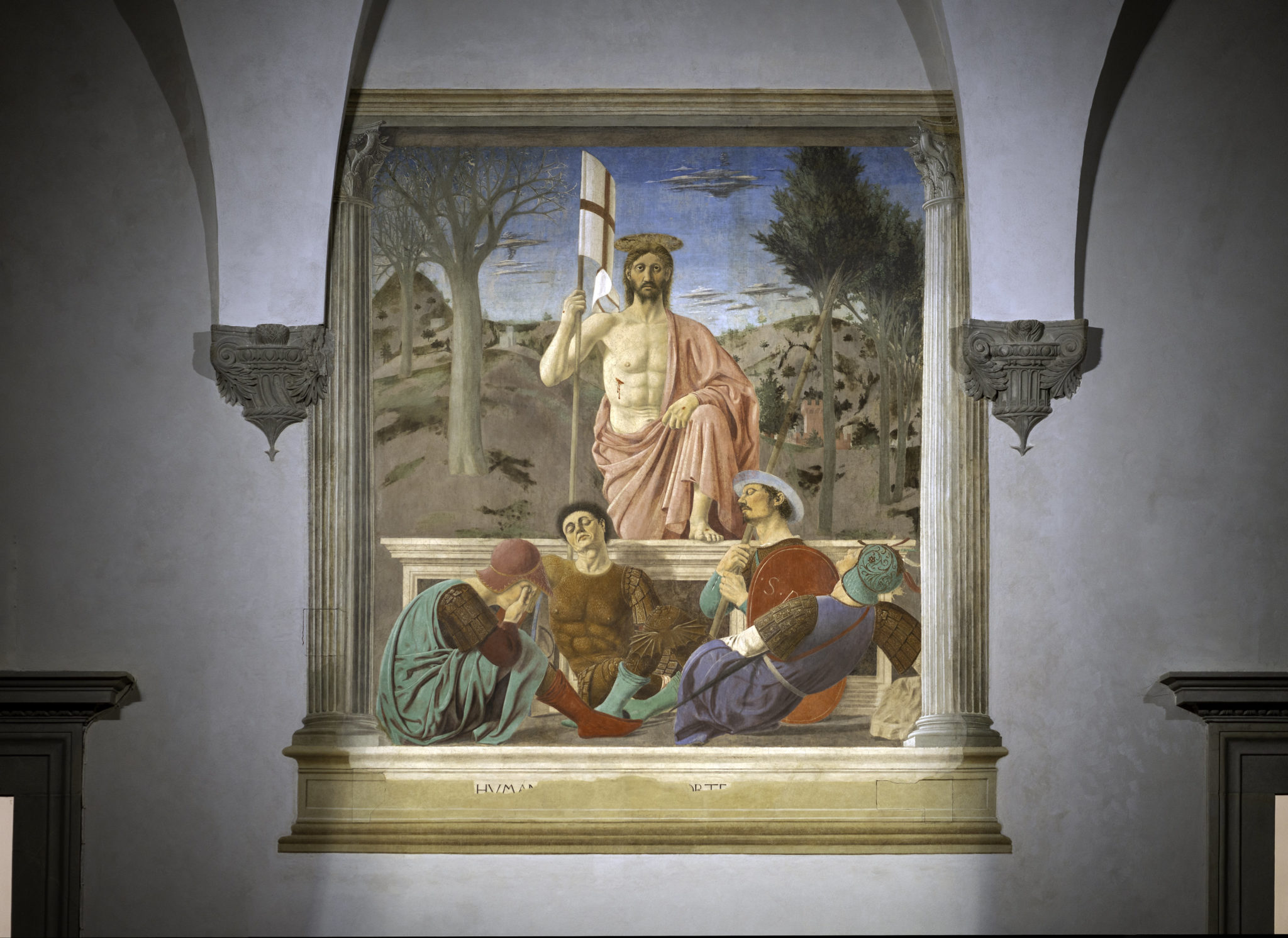
» Piero della Francesca, Resurrection
Piero della Francesca depicted Christ's Nativity materialising as a mystical vision, basing the details of his composition on a famous account by Saint Bridget of Sweden (about 1303-1373). By setting Saint Bridget's vision within a familiar Tuscan landscape, the artist brought the extraordinary circumstances of Christ's birth directly into his own world.